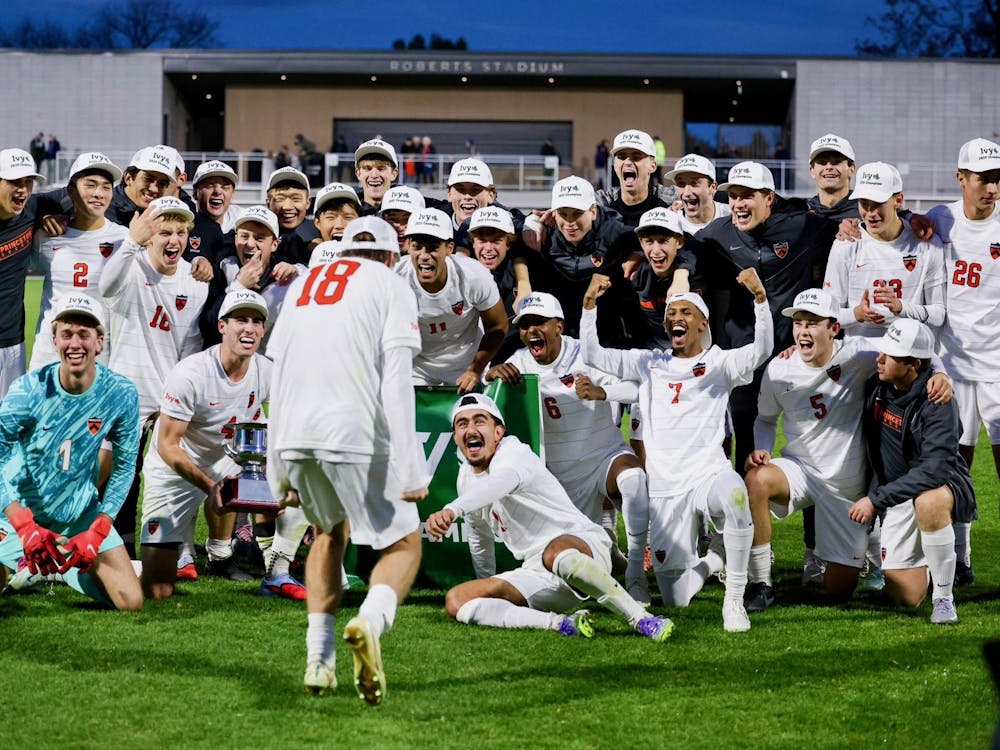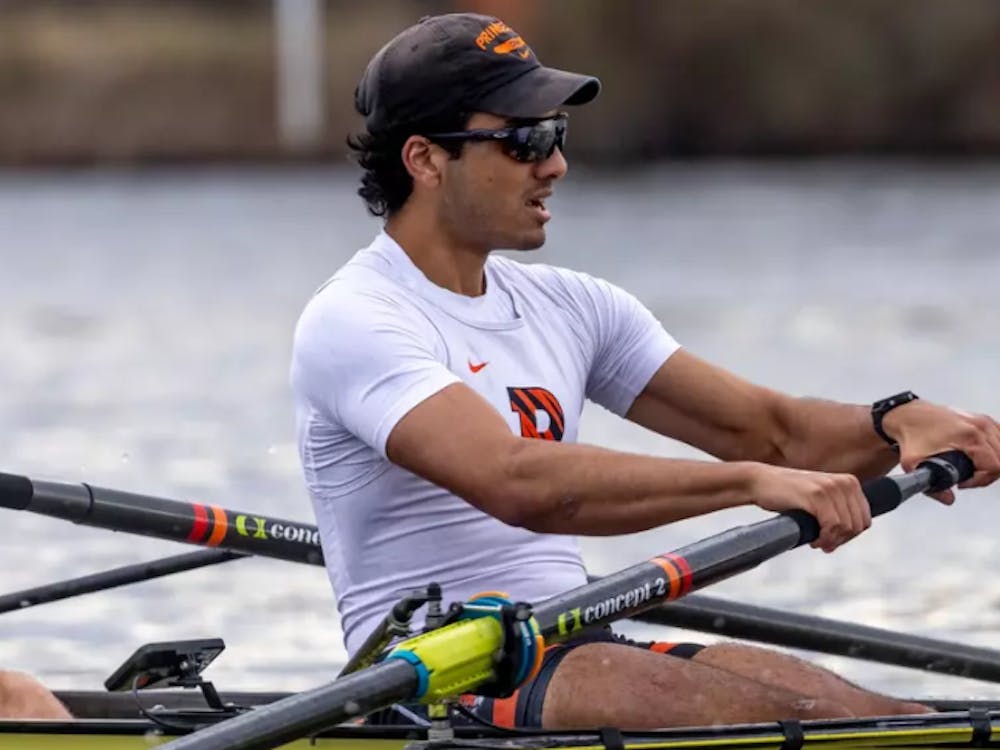In the end, Joe Scott never found his guys.
From the moment in Scott's debut season when a clear gap developed between the talent on the men's basketball team's roster and the results on the court, optimists began to urge patience until Scott '87 had stocked the Tigers full of "his guys."
These were the kind of players with whom Scott had managed to surround himself at Air Force over his four years as head coach there. Once a full cycle of Scott recruits had proliferated through the program, the Falcons flew up from basketball ashes into March Madness, earning Scott a runner-up finish in 2004 NCAA Coach of the Year voting.
Lots of words were thrown around describing who Scott's guys were — what kind of players were best suited for his matchup-zone defense and orthodox version of the Princeton offense. The words almost always described this ideal player's physical makeup: Scott needed length, he needed big guards, he needed interchangeable parts.
But in that last constraint lies the key to Scott's predicament. It takes more than physical uniformity for a group of basketball players to become interchangeable. It requires a certain personality — a willingness to be led by authority and to sacrifice individual freedom for team cohesiveness.
"Most of the decisions I made were questioned by Joe Scott," said Judson Wallace '05, who played his senior season under Scott in 2004-05. "There was never any freedom to make decisions."
The rigid regimentation Scott projected onto his players was what rubbed many critics at Princeton the wrong way. Fans grimaced when Scott pulled a shooter out of a game the moment after an airball, meeting him at the front of the bench to publicly upbraid him and flatten his ego. They shuddered as Scott screeched "Tighter!" from the sideline while the Tigers played defense, exaggeratedly clasping his hands together as if his desire for them to commit to the zone was concomitant with an urge to strangle them.
Scott's death grip was certainly felt in the team's play. Time and again, the Princeton offense created an open shot, but the Tigers failed to execute in situations in which they presumably have thrived throughout their basketball careers.
"The games were there to be won," junior forward Kyle Koncz said. "For whatever reason, when those times came we as players failed to capitalize. We couldn't make shots, or we would miss free throws, not get a rebound, or not get a stop. I think there comes a time when the coach has to stop taking the blame, and some of that has to be put on the players."
But during Scott's tenure, the line between player and coach performance was blurred. Who's to say Scott's voice wasn't ringing in the head of Princeton foul-shooters as they surreally missed one of every three free-throw attempts this season?
And, at the same time, who's to say hearing that voice has to result in misses? Scott Greenman '06 thrived during his senior season under Scott, blossoming as a floor general and scorer on his way to first-team All-Ivy honors. The Tigers finished 10-4 in the conference under Greenman's guidance in 2005-06, and the point guard began channeling Scott's coachspeak during press conferences.
Scott's style certainly wasn't fatal to shooters at Air Force, where four of Scott's five starters during his final season shot over 40 percent from three-point range.

"Those kids are military guys accustomed to degradation and yelling," Wallace said. "Confidence is broken and rebuilt stronger in those situations."
Were Wallace and his fellow Tigers just not tough enough for Scott's brand of basketball? Was there some sense of discipline lacking in the players brought to Princeton by Scott's predecessor, John Thompson III '88, which Scott needed to purge by recruiting "his guys"?
Wallace, for one, was never one of Scott's guys. Coming off a 2003-04 season in which he and classmate Will Venable led the Tigers to an NCAA Tournament appearance while each earning first-team All-Ivy honors, the six-foot, 10-inch center had lofty postseason dreams for his final college season. Wallace, though, clashed with Scott behind the scenes while nursing a back injury, temporarily losing his starting spot three games into a wildly disappointing 6-8 conference season.
"I wish Joe Scott all the luck in the world at Denver, and in no way will I be cheering against him," Wallace said. "I just am extremely disappointed that his failed Princeton experiment occurred during me and my teammates' senior year."
As tough as that season must have been, there is a way in which Wallace's concern for "me and my" could come off as selfish. One of the primary reasons for Princeton's struggles in 2004-05 was the incompatibility of Wallace and Venable's considerable one-on-one skills with Scott's rigid Princeton offense.
But the "not a team player" label doesn't come close to fitting Wallace either.
"I see myself as a leader, straight up," Wallace said. "I was twice captain at Princeton, twice captain in high school, co-captain [on the professional team he currently plays for in Germany's Bundesliga] my second year on a team with 80 percent of the guys older than me."
The fact of the matter is, the leadership qualities Princeton fans admire in their student athletes were the same ones they felt Scott's uncompromising approach threatened. Some of the players who wouldn't give in decided to quit, while most stayed on the team but never entered a comfort zone under Scott's jurisdiction.
A few, like Greenman and Koncz, found a new kind of empowerment in their coach's hard line.
"I loved his personality because it was one that demanded we wake up every day and push ourselves to get better not only in basketball but in life," Koncz said. "I believe that his demanding of me to improve made me a better player all three years I was here."
Unfortunately for Scott, not every player responds to that kind of leadership. It worked at Air Force, and it may well work at Denver.
"Joe didn't all of a sudden lose his coaching ability at Princeton," Director of Athletics Gary Walters '67 said.
For a coach trying to sell old-school values to the leaders of tomorrow, that was exactly the problem.







